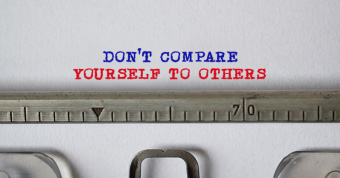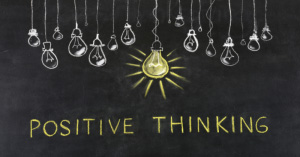We’ve all experienced that sense of not being good enough. We fear the negative judgment of others and dread being ‘found out.’ In the first part of this article, I looked at the deep-seated limiting beliefs that fuel imposter syndrome. In this final part, I’m sharing tips and strategies for overcoming Imposter Syndrome.
Imposter syndrome and our concerns about our worthiness trigger many behaviors that I for one can relate to. We over commit out of fear of letting others down. We give excessive explanations to justify our behavior when maybe no explanation is necessary. The fear of failure drives us to overachieve and of course, it’s imposter syndrome that’s at the root of perfectionism, the haute couture of lack of worthiness.
Whilst we can be aware of the fear-based thinking patterns that underpin imposter syndrome, it won’t magically disappear. We have to put a concerted effort into establishing alternative habits of thinking and behaving. That’s why these strategies for overcoming imposter syndrome are useful.
Lean towards your strengths
Imposter syndrome is a magnet pulling us towards our perceived weaknesses and failures. To counterbalance this tendency we have to lean towards our strengths and achievements.
List them, add to them, or as I do, identify a skill or a quality that you want to honour in yourself at the outset of the day.

Drop the compare and despair
Comparison is the thief of joy. It’s no longer about keeping up with the Jones, it’s about comparing ourselves to whoever we follow on social media. When we do this, we are comparing what we see on someone else’s curated outside, with how we are feeling on the inside. This is never helpful. The only comparison that is valid is between where you are now and where you wish to be on your own continuum of success.
Failure doesn’t equal being a fraud
We are always more than what we do. Sometimes things just don’t work out despite our best efforts. We tend to take things personally because we care, sometimes too much. We cannot control everything, but we can control the effort we put into something. True failure is not trying in the first place.

You cannot be the expert all the time
There’s the saying ‘it’s what you learn after you know it all that counts.’ When we are trying something new, stepping outside of our comfort zone we can only approach it with a beginner’s mindset. Whether it’s a creative project, balancing our thinking by not automatically assuming the worst, or learning to be kinder to ourselves, it’s not about being perfect, it’s about establishing a new practice.
Fake it until you feel it
Could you pretend you are more confident that you are? If you know the uniform of confidence and the attitude that goes with it, could you ‘act as if’ for even 20 minutes? It might feel strange, but developing any new habit will feel strange at the outset.

Empowered Visualisation
Empowered visualisation is something we associate with athletes as they mentally rehearse how they will show up and perform. Imagine if you devoted just 10% of your thinking time to positive or empowered visualisation, contemplating the best outcome as opposed to being consumed by negative visualisation, also known as worry. At the end of the day, it’s all habits of thinking that exist nowhere other than in your mind.
Witness your thinking
When you feel yourself drifting towards excessive self-doubt, becoming a witness to your thinking is the first practical step. Self-reflection questions such as ‘where is this thought coming from?’ or ‘what is the purpose of this thought?’ will get you to neutral territory. Rational thought that’s based on tangible evidence, combined with conscious positive action, is always the antidote to the emotive thinking of imposter syndrome.

Courage
When we feel anxious or self-conscious we often think it is confidence we are seeking, but in reality, it’s courage. Think about learning to drive. It’s not confidence that gets you behind the wheel, it courage. Confidence is the reward when we realise we can step outside our comfort zones and survive to tell the tale.
“Am I too loud? Too much? Dreaming too big? Eventually I just got tired of always worrying what everyone else thought of me, so I decided not to listen” Michelle Obama
The voice of imposter syndrome is also the voice of our self-defence mechanism, ultimately it has our best interests at heart, keeping us safe from perceived threats. But so often those threats are not real, hence the flippant acronym for fear ‘false evidence appearing real.’ And of course sometimes, as Michelle Obama eloquently puts it, we can decide not to listen to that voice.
I hope you enjoyed this post and if you like to listen to podcasts and want to learn more about imposter syndrome then check out episode 111 of my podcast Your Time With James Sweetman where I talk about this in more detail.
If you don’t want to miss any of my latest updates, new blogs, and book reviews then make sure to join my community with your email below.
Thanks
James


0 Comments